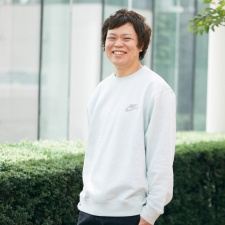PocketGamer.biz can’t speak as to how many people are familiar with Japanese manga publisher Shueisha. But there is no doubt whatsoever of your familiar with its most popular IP – One Piece, Naruto, My Hero Academia, and Dragon Ball, to name only a handful of manga that have found global popularity – and its weekly flagship publication, Shōnen Jump (localised as Weekly Jump).
But its recently announced games division won’t be taking advantage of the incredible international appeal of its manga lineup, instead looking at a different inspiration for its games output: indie devs.
Michiharu Mori, Shueisha GAMES director of marketing, shared his thoughts on the studio’s unusual approach and the ubiquity of mobile gaming’s most popular titles.
PocketGamer.biz: What role will mobile games take within the new Shueisha GAMES division?
Michiharu Mori: We are currently collaborating with a global game developer, whose project will be released as a mobile game, and we will also actively release consoles and PC games as well.
Particularly, we would like to focus on game development that invests in the talents of Japanese game creators, develops gems, promote game development that invests in the talents of Japanese game creators – although we can't currently name our mobile partners due to NDAs involved, but we can just say that we’re working with major Japanese mobile game developers.
you need very advanced data analysis to be able to make large-scale mobile gamesMichiharu Mori
We see our position as very similar to being an indie game publisher, but we’re also working on large-scale projects.
When you say 'similar to being an indie game publisher', do you mean you want to stick with working with small teams in addition to large-scale projects, or will Shueisha GAMES be working with more independence from Shueisha?
Yes, we’re not only on big scale projects, we're also working with small teams making their own games.
We're strongly linked to Shueisha financially speaking, but we have more independence on the business side.
What are the most prominent challenges in the Japanese mobile games industry?
In the Japanese mobile game industry, the top-ranking games are becoming more and more immovable: this is because you need to have access to very advanced data analysis to be able to make large-scale mobile games.
This is also recognisable in the global mobile games industry. What is it about mobile games audiences that keeps games perpetually within the top-ranking lists?

That access to data analysis means the most successful titles only continue to get stronger through a solid operating structure through capital strength, while those which seem to perform less well will be cut from the stores quickly.
Mobile games require not only a high level of completion as a game but also good operational skills, such as regular updates and events. This is also an area where considerable capital strength of companies is required, and I feel that there is a trend for strong companies to stay strong.
Many of the most popular mobile games in Japan do not find international releases. What explains this, and how important will international releases be for Shueisha?
I believe this is because of the uniqueness of the Japanese market.
At Shueisha GAMES, we’re aiming to be not only a developer for the Japanese market but also on a global premise. We would like to actively collaborate with overseas companies, and we will recruit staff who can promote our products on the global market.
We want to create unique and fun games that are tailored to the appropriate platform. Those games might not be big-budget games, but they’ll resonate with particular audiences, that’s why we want to give them a chance to be played by people all over the globe.
We’re aiming to be not only a developer for the Japanese market but also on a global premiseMichiharu Mori
Anime mobile games and franchises are becoming an increasingly significant cultural force globally, as entities such as Netflix begin to commit significantly to international audiences. Can you discuss what franchises Shueisha will be looking to work with?
Games based on Shueisha's manga are not our focus. Instead, we’re looking at how the indie scene is booming on a global scale, and we would like to do the same thing we do with manga but applied to games: discovering young talents and creating original works that'll surprise people all over the world.
Just as many unique titles that paved the way in the past and became famous, we hope to follow this path and create games that’ll touch and will be loved by many players.
And we believe we have an advantage because Shueisha has been investing in creators for many years.

















